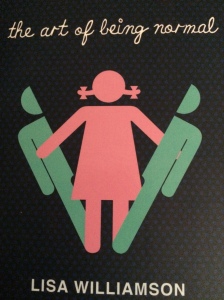The months have just flown by and I must confess that everything’s slipped a bit: blogging reading, generally being involved in the world. Nevermind. The sun is shining, days seem longer and it’s warming up, so it seems time to get back on track.
I read two books in March.
The first is The Little Paris Bookshop by Nina George. I chose this book when I wandered into Waterstones with time to kill. I wasn’t really sure what I wanted to read when this popped out at me. I wasn’t disappointed.

I really enjoyed reading about how Jean Perdu, the owner of the Literary Apothecary ( a restored barge, now bookshop, moored on the Seine), prescribed novels and poetry for his customers’ woes. Nina George drops you, effortlessly, into the daily life of the reclusive Perdu. The descriptions of France and the people are beautiful. The reader is fully immersed in the journey Perdu takes along the rivers and canals of France in order to cure his own troubled soul and face the ghosts of his past.
I didn’t want to put it down. The Little Paris Bookshop is a charming book: the imagery provides the right amount of escapism, and the emotional journey the right amount of grit.
I recommend this book to lovers of books, lovers of bookshops, lovers of France and lovers in general.
The second book I read was based on a recommendation from a student. It is The Art of Being Normal by Lisa Williamson.

The split narrative of this story caught me instantly. (I’m a bit of a lover of multiple narrators – I think Rites by Sophie Coulombeau does it very well.) We follow the lives of “geeky” David Piper and newcomer “hard as nails” Leo Denton.
For a slightly easier life at school and home, David allows people to think he’s gay. Most people don’t know the truth that, actually, David wants to be girl. The first person narrative allows the reader to access what David is keeping from the world: his social worries, his personal worries and the fear of being found out.
Leo Denton joins David’s school under mysterious circumstances. Williamson also keeps these details from the reader for most of the book. Leo has been labelled as dangerous and he’s happy to keep the world at a distance.
This book deals sensitively with transgender concerns. The fact that our narrators are teenagers, struggling with their identities whilst trying not to draw any unwanted attention to themselves, lends a sense of integrity and reality to the story telling. It doesn’t preach to the reader, it just explores the issues of growing up without being sensationalist.
This is definitely a book which I’ll be recommending to my students and friends alike.
What’s next?
I’ve started reading Egg and Spoon by Gregory Maguire, so I should be reviewing that at the end of April. A friend also bought me All The Light We Cannot See by Anthony Doerr for my birthday. The SO couldn’t wait and has already read it. He says I’ll love it, so that’s my next ‘to read’. Maybe he can post the review though.
